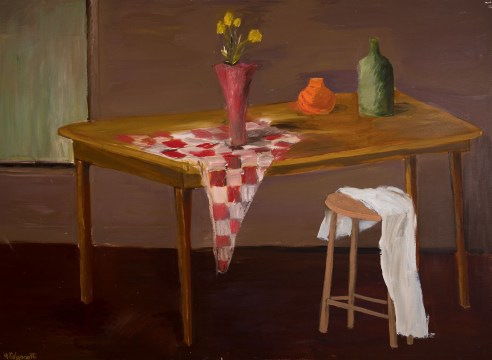
An internationally known artist, Robert Colescott has long explored the social questions of our times with both seriousness and wit. His controversial topics range from the mundane to the profound, touching on race, history, sex, and power. Colescott’s expressive, cartoon-like portrayals of American slices of life contain poignant and thought-provoking images using vibrant color. He paints a version of popular culture, using references to art history, religion, and literary sources. At 81, he continues to wrestle with societal clichés and prejudices in light of contemporary issues and his personal insights.
Born in Oakland, California, Robert Colescott graduated from UC Berkeley in 1952 after studying at the Atelier Fernand Léger in Paris. From 1957 through 1966, he served as Associate Professor of Art at Portland State University. He has been the recipient of numerous awards, including a Guggenheim Foundation Grant and two NEA awards. In 1997, his work was selected to represent the United States at the 47th Venice Biennale. On December 2nd, 1988, Houston, Texas’ mayor, Katherine B. Whitmire declared “Robert Colescott Day,” on the occasion of Colescott’s exhibition at the Museum of Contemporary Art, there. His work is included in the collections of MOMA, NY, the Metropolitan Museum of Art, the Boston Museum of Fine Arts, the Brooklyn Museum of Fine Art, the Corcoran Gallery of Art, the Seattle Art Museum, and the Portland Art Museum. He is Emeritus Professor of Art at the University of Arizona in Tucson.